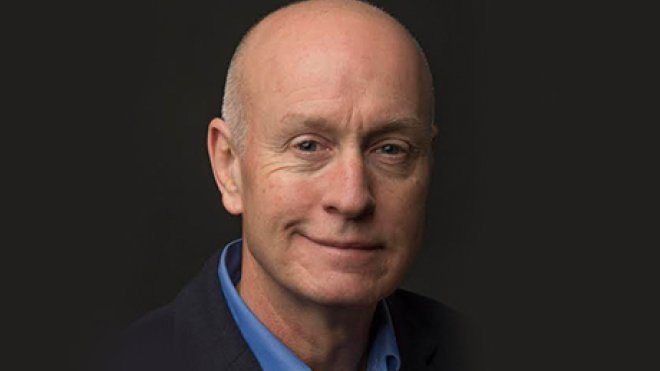New York Times Reporter Dan Barry to Talk About “The Lost Children of Tuam” at RWU on Nov. 14
Community invited to hear journalist and author speak as part of yearlong series, “Talking About Race, Gender and Power”

BRISTOL, R.I. – New York Times columnist and reporter Dan Barry will visit Roger Williams University on Tuesday, Nov. 14, to discuss his recent special report, The Lost Children of Tuam, a disturbing account of the historic mistreatment of unwed Irish mothers and their children.
Barry’s talk represents that latest installment in RWU’s yearlong series, “Talking about Race, Gender and Power.” Free and open to the public, the talk will run from 4:30 to 5:30 p.m. at the Mary Tefft White Cultural Center in the University Library, on the Bristol campus at One Old Ferry Road.
The Lost Children of Tuam presents a heartbreaking description of the Mother and Baby Home in Tuam, County Galway, where unmarried mothers were sent and forced to abandon their children to a group of nuns. It details the investigative work carried out by a local woman, Catherine Corless, who discovered that nearly 800 “home babies” had no burial records. And it recounts the gruesome discovery of the bodies of small children and babies buried in a decommissioned septic system behind the Mother and Baby Home. The article and accompanying video have received millions of hits on the New York Times website and social media.
“Roger Williams University is pleased to welcome Dan Barry, one of our nation’s finest writers, who uses his powers of narrative and description to shine a vivid light on instances of injustice and the abuse of power,” RWU President Donald J. Farish said. “The Lost Children of Tuam is an alarming but important portrait of a universal problem involving powerful institutions and the treatment of women.”
Barry is a former Providence Journal reporter who has written four books, including Bottom of the 33rd: Hope, Redemption, and Baseball’s Longest Game, about the record-setting game at Pawtucket’s McCoy Stadium. His latest book, The Boys in the Bunkhouse: Servitude and Salvation in the Heartland, tells the story of men with intellectual disability who endured decades of exploitation – living in an old schoolhouse and working at an Iowa turkey-processing plant for little pay – before finding justice and freedom.
Barry has reported on many news events for the New York Times, including the attack on the World Trade Center and the aftermath of Hurricane Katrina. He has been a City Hall bureau chief, a Long Island bureau chief, a sportswriter, a general assignment reporter, and, for three years, the “About New York” columnist. As the “This Land” columnist for the Times, he traveled to all 50 states, where he met the coroner from “The Wizard of Oz” in a Florida retirement home, was hit in the chest by an Asian carp leaping out of the Illinois River, and learned the bump-and-grind from a retired burlesque queen in Baraboo, Wis.
Barry previously worked for the Journal Inquirer in Manchester, Conn., and for The Providence Journal, where he was part of an investigative team that won a Pulitzer Prize in 1994 for a series of articles about Rhode Island’s court system. A graduate of St. Bonaventure University and New York University, he lives in Maplewood, N.J., with his wife, Mary Trinity, and daughters, Nora and Grace.